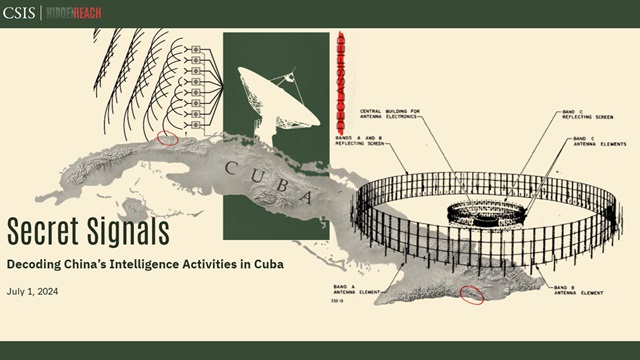 Chinese Intelligence Facilities in Cuba Expand, CSIS Report Reveals
Chinese Intelligence Facilities in Cuba Expand, CSIS Report Reveals
A recent report by the Center for Strategic and International Studies (CSIS) has uncovered the expansion of Chinese intelligence facilities in Cuba. The July 1, 2024 study, titled "Secret Signals: Decoding China's Intelligence Activities in Cuba," identifies four key locations: Bejucal, Calabazar, El Salao, and Wajay.
Satellite imagery analysis shows significant upgrades to these facilities over the past decade. Two sites in Havana, Bejucal and Calabazar, feature large dish antennas likely used for satellite communication and observation. El Salao, constructed since 2021 near Santiago de Cuba, is situated close to the U.S. Guantanamo Naval Base and appears to house a circularly disposed antenna array.
The report suggests that these facilities enhance Cuba's electronic spying capabilities with Chinese assistance. Their proximity to the southern United States and the Caribbean makes them strategically valuable for collecting signals intelligence (SIGINT) on the region.
This development occurs amid growing U.S. concern about foreign influence in Latin America. A February U.S. intelligence assessment acknowledged China's pursuit of military complexes in Cuba. Recent reports have also highlighted increased Russian activity in the region.
The expansion of these bases raises concerns about China's growing intelligence capabilities in the Western Hemisphere. Experts suggest these facilities could enhance China's ability to monitor telecommunications networks and potentially spy on U.S. citizens.
As tensions between the U.S. and China escalate, the situation in Cuba represents a new front in their ongoing strategic competition. The proximity of these intelligence gathering facilities to U.S. soil underscores the evolving nature of global espionage and the increasing importance of signals intelligence in modern geopolitics.


